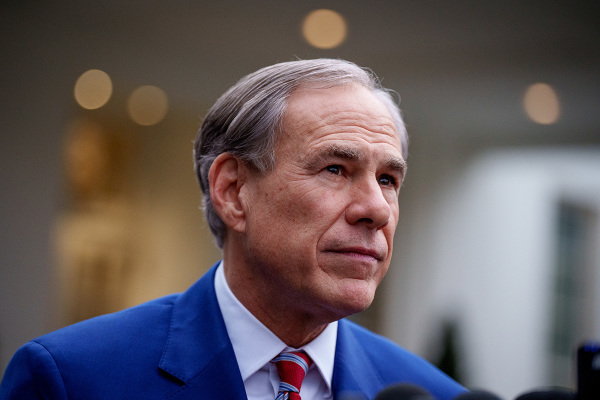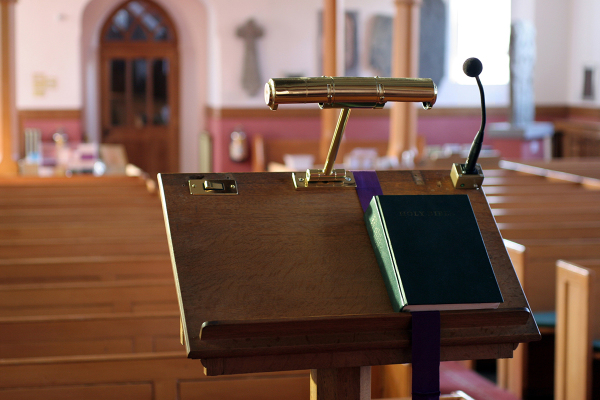Survey: Family Trumps Jesus in Christmas Celebrations
NASHVILLE, Tenn. – It's beginning to look a lot like Christmas, and it's not just Christians turning December into a festive month of themed décor, gift giving and mailboxes packed with greeting cards.
A new study by LifeWay Research reveals that nine in 10 Americans (91 percent) personally celebrate Christmas and those aren't all self-identified Christians. A majority of agnostics or those claiming no preference (89 percent), individuals claiming other religions (62 percent), and even atheists (55 percent) celebrate Christmas along with 97 percent of Christians.
Overall, married adults, people with children under 17 and individuals who are older than 30 are more likely to celebrate Christmas than their counterparts, though the differences in percentages are minimal.
"There's a reason that Christmas themes dominate television, stores and neighborhoods come the end of November," said Scott McConnell, director of LifeWay Research. "Nearly every American celebrates the holiday in some form or fashion."
Once it was determined who is celebrating Christmas, the survey turned to how Americans are celebrating. LifeWay Research uncovered a gap, even among Christians, between the religious emphasis of the holiday and the merry, family-focused traditions.
In fact, 81 percent put family first at Christmas, agreeing, strongly or somewhat, with the statement, "Family traditions are the most important part of Christmas to me."
"There is no question that Americans celebrate the Christmas holiday, although many institutions shy away from using the words 'Merry Christmas' so as to not offend the 9 percent who do not," said Ed Stetzer, president of LifeWay Research. "But a closer look at how they celebrate reveals that it typically revolves around family and that Christ-centered elements are not as common. For many in our culture, the season is disconnected from the reason. For many of those, family is the reason for the season."
Among a list of 14 things people do at Christmas, giving gifts to family members is the most common activity at 89 percent. Additionally, more than three out of four households report they gather with family or friends for a Christmas meal (86 percent), put up a Christmas tree (80 percent), listen to Christmas music (79 percent), and decorate their homes (77 percent).
Christians are actually among the most likely to enjoy elements of the Christmas season not related to Jesus' birth, with 66 percent saying they watch fictional Christmas movies, as compared to half of agnostics or those with no preference, and less than half of atheists and Americans of other religions.
Gift giving is also most popular among Christians, 94 percent of whom say they give gifts to family members. This affinity for giving gifts perhaps points to why Christians are also most likely to encourage belief in Santa Claus. Overall, a little more than one-third of households (38 percent) encourage belief in Santa, compared to 42 percent of Christian households. Just 27 percent of agnostics or those without a religious preference, 22 percent of those claiming other religions, and 18 percent of atheists encourage belief in Santa Claus.
Encouraging belief in Jesus as Savior is actually more common among all Americans, at 58 percent, than encouraging belief in Santa. In fact, more than three-quarters agree, 62 percent strongly, with the statement, "I believe Jesus is the reason for the Christmas season," and 59 percent strongly agree that "Mary was a virgin when she gave birth to Jesus Christ."
"That's good news, but it is not the whole story," Stetzer said, pointing out that 38 percent encourage belief in Santa Claus yet only 28 percent read or tell the Christmas story from the Bible.
"Acknowledging the source of Christmas is widespread, but telling the story is not. Christians should do both and share that with others," Stetzer explained.
Though a majority encourage belief in Christ at Christmastime, 67 percent of Americans say that, "Many of the things I enjoy during the Christmas season have nothing to do with the birth of Jesus Christ."
"Americans give Jesus a head nod at Christmas but spend most of the season pleasing their eyes, ears and taste buds with decorations, music and meals," McConnell said. "Many celebrate Christmas the way most have celebrated Halloween – the fun traditions without sharing the religious significance."
Still, nearly half of all households do attend special church services on Christmas Eve or Christmas, including 2 percent of atheists, 9 percent of agnostics or those with no religious preference, and 22 percent of those claiming other religions.
"Churches often look forward to some of their largest attendance of the year at Christmas week services, and 47 percent of Americans say their household typically attends such church services," Stetzer pointed out. "It may not be a huge percentage, but the survey suggests that Christmas does provide an opportunity for churches to reach typically unchurched individuals.
"Christians can often get distracted during Christmas and completely overlook the opportunity to represent Christ to their neighbors," Stetzer continued. "Believers can and should put Christ first in our Christmas celebrations and then represent Him to a world in need of the biblical understanding of 'peace on earth.'"
Methodology: The LifeWay Research survey was conducted Nov. 29-Dec. 1, 2010, via online panel. A representative sample of the U.S. adult population was invited to participate. The sample of 2,110 provides 95 percent confidence that the sampling error does not exceed ±2.2 percent.






















